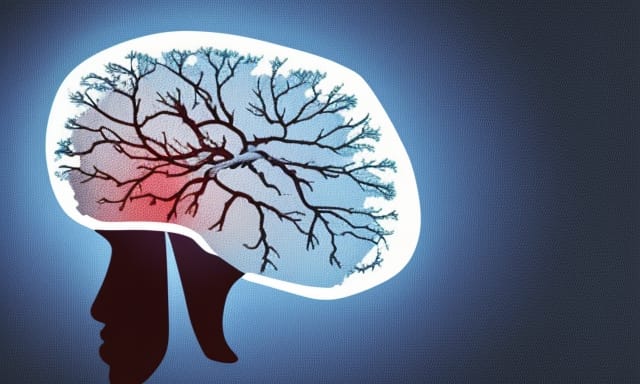
Politics has been, since the beginning, a seat-of-the-pants enterprise. Although the West has produced Aristotle, Marcus Aurelius, Machiavelli and others, the modern Western leader reads nothing of these men, preferring to just make everything up as they go along. But in the age of advanced science, it’s possible to have a political philosophy grounded in empirical observation.
More specifically, it has to be grounded in known psychological science. Modern psychological science gives us insights into human nature that were completely unavailable to philosophers in times past. Aristotle knew nothing of sociobiology. A sociobiologist standing on Aristotle’s shoulders could give us a vision of our own nature that was broader and deeper than ever before.
A failure to understand human nature is the common theme running through all failed political ideologies.
Communism failed because its architects failed to understand that people are always at least a little bit selfish, and cannot simply be conditioned to behave otherwise by propaganda. A system set up on the basis that people are perfectly altruistic will inevitably collapse into corruption and widespread distrust when rhetoric doesn’t match reality.
Capitalism is failing because its architects failed to understand that people would rather drop out of the system than get worked to death paying for rents and taxes. A system set up on the basis that workers can be employed for 50 hour weeks without the ability to own homes, yet will still have the motivation to work, also doesn’t match reality.
Historically, political philosophy has not been grounded on an accurate view of human nature, because there was no formalised science of understanding human nature. Machiavelli might have been correct when he said that human nature doesn’t change from time to place, but not enough people listen to Machiavelli.
Today’s psychological science, however, can predict human behaviour with frightening accuracy. The Amazon, Google and FaceBook algorithms can predict your next purchase before you even think about it. They can tell you who you’re going to vote for before you’ve even decided. It’s a thousand times more advanced than the knowledge Karl Marx would have had access to.
A modern political philosophy must be grounded in what we now know about human nature. This means: grounded in a psychological science that has a particular emphasis on man’s origin as a naked ape (hat tip to Desmond Morris).
Fundamentally, such an approach understands that the human animal evolved social structures as part of the battle for resources that all animals must engage in. It has to be made explicit that political questions are usually just questions of resource distribution, the same questions that man-ape chieftains would have wrestled with even before civilisation. Unfair resource distribution stirs up very deep, primal instincts that can rapidly become destructive. Therefore it’s important to get politics right.
It has to be taken seriously, and that means scientifically.
The curious thing is that a properly scientific approach appears to favour neither the left nor the right.
Developmental psychology tells us that hitting children, and most other forms of corporal punishment, have extremely bad outcomes for those children. There are strong correlations between getting hit as a child and ending up with antisocial personality disorders or suicidal depression. Hitting kids is right up there with fucking them as one of the worst things you can do. Therefore it ought not to be legal.
Developmental psychology also suggests that societies would benefit from making life less financially stressful for mothers of newborns. In America, where it’s sink or swim, mothers of newborns are often put under extreme financial stress. This leads to much higher rates of child abuse and neglect in comparison to, say, the Scandinavian countries, where mothers of newborns receive adequate financial aid. The end result is more mentally damaged people. So a slight tax increase, with the money invested into early child care, is likely to pay for itself many times over.
Such findings might favour leftist policies, but other findings don’t.
Psychometrics tell us that intelligence is about 80% genetic, and therefore education can only raise it to a limited degree. So importing people from countries where the average IQ is 85, and expecting their kids to turn out the same as ours just because we put them in the same schools, is a recipe for national suicide.
Western immigration politics since World War II has been based on the assumption that all human groups are genetically the same, therefore can be exchanged for each other like so many replaceable parts. Psychometrics has given us a blackpill that we need to swallow: many populations with average IQs under 100 are never going to adjust to modern Western life. We have to stop importing them.
Evolutionary psychology says that multiculturalism is bound to fail because people stop co-operating once they no longer have meaningful bonds of kinship with their surrounding population. So large, multicultural cities like New York, Los Angeles or London could have been predicted to have ended up soulless free-for-alls, as they did.
Evolutionary psychology also tells us that individuals within the same family can vary greatly in IQ thanks to genetic recombination. Even if a group of parents all had IQs of 100, some 2% of their offspring would have IQs above 130, and a similar number would have IQs below 70. Their children might have a mean IQ of 100, but individuals will vary a lot from this average.
This natural variation in individual intelligence means that we cannot have, for instance, families in which every member was expected to become a doctor. Neither can we have racial exclusions such that members of certain races were banned from, or restricted to, certain professions. Such arrangements would be monstrously inefficient given natural variation in intelligence.
Ethology shows us that many different animals use drugs to get high, therefore a War on Drugs is unnatural. Altering the contents of consciousness through the use of psychoactives seems to be as natural as anything else is, perhaps reflecting the Elementalist belief that the world was dreamed up to entertain the gods in the first place. Banning the use of drugs, then, is as futile as banning sex. People will do it anyway.
Grounding a new vision of politics in psychological science could solve many problems. First and foremost it would solve the problems arising from basing a political philosophy on an inaccurate conception of human nature.
*
For more of VJM’s ideas, see his work on other platforms!
For even more of VJM’s ideas, buy one of his books!
*
If you enjoyed reading this essay/article, you can get a compilation of the Best VJMP Essays and Articles from 2021 from Amazon as a Kindle ebook or paperback. Compilations of the Best VJMP Essays and Articles of 2020, the Best VJMP Essays and Articles of 2019, the Best VJMP Essays and Articles of 2018 and the Best VJMP Essays and Articles of 2017 are also available.
*
If you would like to support our work in other ways, subscribe to our SubscribeStar fund, or make a donation to our Paypal! Even better, buy any one of our books!






